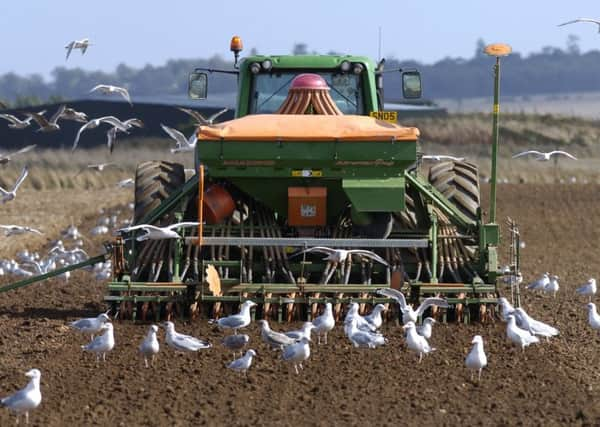Farm incomes slashed by almost 50% in one year
This article contains affiliate links. We may earn a small commission on items purchased through this article, but that does not affect our editorial judgement.


And following five years of continuing decline, the latest official government figures released yesterday for the average farm business income for commercial farms across the country showed that incomes had fallen by 75 per cent since 2010-11.
• READ MORE: Farming news
The figures, drawn up by Scotland’s Chief Statistician for the 2015 harvest year, showed that the average business income for farmers and their families was only £12,600 – back more than £11,500 on the year.


Advertisement
Hide AdAdvertisement
Hide AdWell over a third of business made an overall loss during the year – however, if farm support payments were removed from the equation, the average farm was plunged into the red, making losses of over £25,500.
Although there has been a change in how the statistics are interpreted in recent years, the figures are the lowest since 1999-2000 in real terms – and they confirmed that the fall over the past five years was the most severe since the BSE food scare in the mid-90s.
While some input costs fell in 2015-16 compared to the previous year, the report highlighted the fact that there had been a far bigger decrease in the farmgate prices of all crop and livestock products.


The official figures showed that, between 2014-15 and 2015-16, all eight farm types experienced a decrease in overall FBI, with dairy farms and mixed farms showing the biggest cuts – at 97 per cent and 81 per cent respectively.
While the basic payment scheme replaced the single farm payment scheme in 2015 as the method of allocating funding through direct payments, the average value of all grants and subsidies in 2015-16 was £38,100, a fall of 6 per cent on the previous year.
‘Whole sector must support producers’
Describing yesterday’s figures as an “income shocker”, NFU Scotland called on the country’s booming food and drink sector to take immediate action to address the huge imbalance between the growth and profitability being enjoyed by retailers and processors and the returns being made by those producing the raw materials at the farm gate.
Advertisement
Hide AdAdvertisement
Hide AdThe union’s policy director, Jonnie Hall, said that the farm business income figures put a clear onus on those further up the food and drink chain to address the underlying disparity in returns.
“Scotland’s food and drink sector, lauded for its ongoing success and ambitious targets, must start to deliver for those at the farmgate and who have seen their incomes fall by more than 75 per cent since the start of the decade,” he said.
Stating that that the steep, downward spiral in farm incomes was placing huge financial pressure on Scotland’s farmers, Hall also said that the low level of returns brought into sharp focus the over-riding need for post-Brexit farm policy and support structures which would secure profitability and stability at farm level.
“These bleak income figures provide hard evidence of the sustained financial damage to farm businesses across a range of sectors,” said Hall. “Anecdotal comments and suspicion around how difficult it has been for farms and crofts to make a profit in recent times are now backed by fact.
“The viability, let alone profitability, of every Scottish farming business relies on three cogs working together – costs, markets and support.”
He said that given the deterioration in farm incomes, the evidence was now clear that no part of the equation was currently working.
“Whether producing livestock, crops, milk, poultry, pigs, fruit or veg, farmers and crofters continue to face rising input and compliance costs, declining market returns and an erosion of support payments, conspiring to threaten the very existence of many,” he added.
“These figures highlight the absolute requirement to drive down all costs, ensure a much fairer share of the margins in the supply chain to the primary producer, and the vital need for governments to commit to ongoing support targeted at active farm businesses.
Advertisement
Hide AdAdvertisement
Hide AdHe said that as the industry entered a period of even greater uncertainty, “with the potential to further undermine confidence”, it was essential that producers were given unequivocal signals that new trading deals and support arrangements would put the prosperity of farming businesses top of the agenda.